FOHO Blog – Global Housing & Living Guide for Foreigners
How to Get a Korean Credit Card for Foreigners
Get a credit card in Korea as a foreigner. Our 2025 guide covers documents, visa types, and foreigner-friendly banks like Shinhan for expats and students.
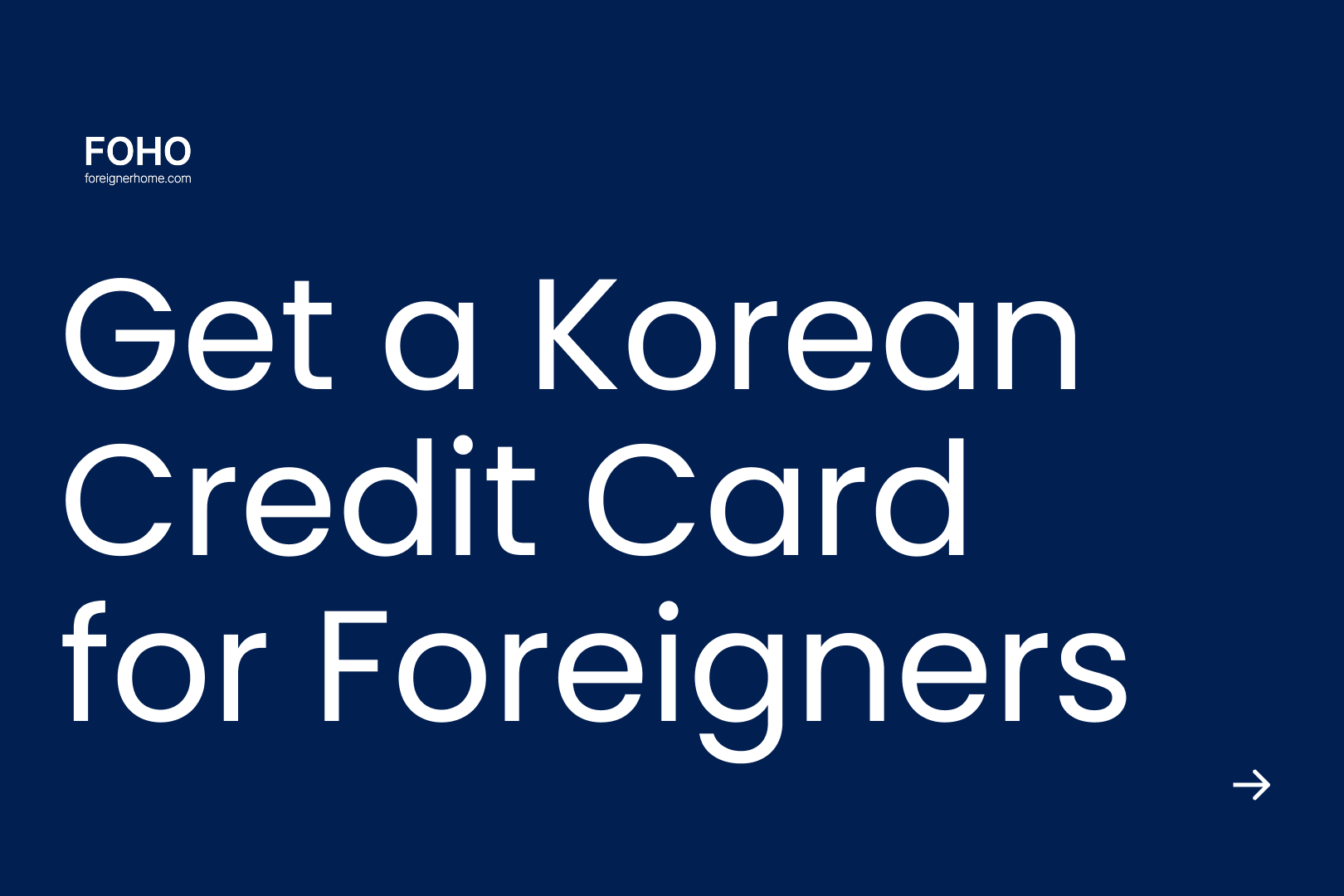
Table of contents
- 01The Ultimate 2024 Guide to Getting a Credit Card in Korea for Foreigners
- •Part 1: Why You (Really) Need a Credit Card in Korea
- •Part 2: The Official Rules & Documents You Need
- •Part 3: Card Company Analysis for Foreigners
- •Part 4: How Your Visa Type Impacts Your Application
- •Part 5: Alternatives & Stepping Stones to a Credit Card
- •Part 6: Final Strategy and Action Plan
- •Finding Your First Home in Korea? FOHO Can Help.
The Ultimate 2024 Guide to Getting a Credit Card in Korea for Foreigners
Part 1: Why You (Really) Need a Credit Card in Korea
- Online Identity Verification: Many Korean websites and apps require you to verify your identity to sign up or pay. Often, the only options are a Korean mobile phone plan or a Korean-issued credit card. Without one, you can be locked out of essential services like e-commerce sites (Coupang, Gmarket), government portals, and booking platforms.
- Installment Payments (Halbu / 할부): This is a core feature of Korean consumer culture. Credit cards allow you to split large purchases over several months, often interest-free. This is extremely common for everything from buying electronics to booking flights. This option is not available with debit cards.
- Access to Discounts and Rewards: The most valuable discounts for daily expenses—like public transport, grocery stores, cafes, and phone bills—are tied to credit card usage. Using a debit card means missing out on significant savings and rewards points.
The Core Problem: Why Is It So Hard for Foreigners?
- Flight Risk: The possibility that a cardholder might leave the country without paying their debt.
- Income Instability: Uncertainty about the long-term stability of a foreigner's income and visa status.
- Data Mismatch: Your financial history from your home country is not accessible or considered in the Korean system.
Part 2: The Official Rules & Documents You Need
Universal Eligibility Criteria
- Age: You must be a legal adult, which is 19 years or older in Korea. (Those 18 or older with proof of employment may be considered).
- Legal Status: You must be a legally registered resident with a valid Alien Registration Card (ARC).
- Financial Standing: This is the most critical part. You must meet two conditions:
- Monthly Disposable Income: At least ₩500,000. This is calculated as
(Annual Income - Annual Debt Payments) / 12. - Credit Score: A minimum score is required. While the exact number varies, a common baseline is around 680+ on the NICE scale or 576+ on the KCB scale.
Your Document Master Checklist
- Alien Registration Card (ARC): Your official ID in Korea.
- Passport: To verify your identity.
- Certificate of Income Amount (소득금액증명원): The most trusted document for proving income. It's issued by the National Tax Service (Hometax) and shows your officially reported income from the previous year.
- Health Insurance Premium Payment Certificate (건강보험료 납부확인서): A powerful document. Since insurance premiums are tied to your salary, this proves consistent employment and income level. You can get this from the National Health Insurance Service (NHIS) website.
- Certificate of Employment (재직증명서): A letter from your employer confirming your job title, start date, and employment status.
- Bankbook Copy Showing Salary Deposits: Provide a copy of your bankbook showing at least 3-6 months of consistent salary payments into a Korean bank account. This demonstrates stable cash flow within the Korean financial system.
- Proof of Asset Ownership: If you own property in Korea, documents like a certified copy of your property register can significantly lower the perceived "flight risk."
- Fixed Deposit (Time Deposit): Some banks, notably Shinhan, allow you to use a fixed deposit account as collateral for a credit card. This is an excellent option for those with savings but without a regular salary in Korea (like students or non-working spouses).
Table 1: Document Checklist by Applicant Type
Applicant Type | Essential & Core Documents (Tiers 1 & 2) | Recommended Supporting Docs (Tier 3) | Key Challenge |
Salaried Employee (E-7, F-2, F-5 visas) | ARC, Passport, Certificate of Employment, Health Insurance Certificate, Certificate of Income Amount | Bankbook showing 3-6 months of salary deposits. | Proving sufficient time at the job (usually 6-12 months is preferred). |
Freelancer / Business Owner | ARC, Passport, Certificate of Income Amount (from previous year). | Bank statements showing 6+ months of regular income, regional health insurance payment certificate. | Proving stable and consistent income without a regular employer. |
Student with Part-Time Job (D-2, D-4 visas) | ARC, Passport, Part-time employment contract, 3-6 months of payslips. | Certificate of bank balance showing significant savings. | High rejection rate due to low income and temporary visa status. |
Spouse of a Korean National (F-6 visa) | ARC, Passport, Certificate of Family Relations. | Spouse's income/asset documents, proof of jointly owned property. | Heavily dependent on the spouse's creditworthiness. |
Asset Holder (No/Low Income) | ARC, Passport, Certificate of bank balance for a large fixed deposit (e.g., ₩10M+ held for 1-6 months). | N/A | Finding a card issuer that explicitly offers deposit-backed cards (e.g., Shinhan). |
Part 3: Card Company Analysis for Foreigners
The Aggressive Players: Targeting the Foreigner Market
- Key Product: The "E9pay Shinhan Card Cheoeum" is a game-changer, created in partnership with fintech company E9pay.
- Flexible Requirements: It has significantly relaxed the rules. For example, a fixed deposit of ₩10 million held for just one month can qualify you, bypassing the traditional income proof requirements.
- Superior Accessibility: You can apply through the E9pay app in 16 languages. The entire process takes about 10 minutes, and you can pick up your card at any GS25 convenience store.
- Lower Deposit Standard: Even for their regular deposit-backed cards, they've lowered the required collateral amount.
- Key Product: The "Hana EZ Card" is explicitly marketed to foreign residents.
- Tailored Benefits: It offers practical discounts relevant to daily life for expats, such as at convenience stores, hospitals, pharmacies, and for mobile phone bills.
- In-Person Focus: Applications are primarily handled at Hana Bank branches, making it a good choice for those who prefer face-to-face service.
The Mainstream Players: Applying Standard Domestic Policies
- Data-Centric Approach: Known to heavily rely on official data, especially records from the National Health Insurance Service. This means applicants with a clean, long-term record in the government system have a better chance.
- Standard Requirements: They stick closely to the official guidelines: ₩500,000+ monthly disposable income and a solid credit score (e.g., NICE 710+).
- Standardized Process: Both companies follow industry-standard criteria. Their online application channels are primarily designed for Koreans.
- Best for "Perfect" Profiles: If you have a stable, high-paying job with a major Korean company and a long residence history, you can succeed here. However, they offer less flexibility for non-standard cases.
Table 2: "Foreigner-Friendly" Card Company Comparison
Card Company | Key Foreigner-Focused Product | Known Minimum Requirements | Application Channels | Differentiating Strength | Friendliness Rating & Rationale |
Shinhan Card | E9pay Shinhan Card Cheoeum | ₩10M deposit for 1+ month OR standard income proof. | E9pay App (16 languages), Online, Branch | Digital-First Accessibility. Multi-language app, fintech partnership, and convenience store pickup are revolutionary. | ★★★★★ (Excellent): Actively courts the foreigner market with tailored products, relaxed requirements, and unmatched digital convenience. |
Hana Card | Hana EZ Card | Standard income/credit rules, but the product is designed for foreigners. | Hana Bank Branches | In-Person Service. Great for those who want help from a bank teller. Benefits are practical for daily life. | ★★★★☆ (Very Good): Shows clear intent to serve foreigners with a dedicated product. Less digital flexibility than Shinhan. |
KB Kookmin Card | Standard Cards (e.g., K-Pass Card) | Standard: ₩500k disposable income, NICE 710+/KCB 621+. Relies on health insurance data. | Online, Branch | Data-Driven Reliability. A solid choice for long-term residents whose financial life is perfectly documented in official Korean systems. | ★★★☆☆ (Good): A reliable option for established residents with a "perfect" paper trail. Less flexible for newcomers. |
Hyundai/Samsung | Standard Cards | Standard: ₩500k disposable income, meets credit score threshold. | Online, Branch | Brand Power & Rewards. Access to a vast ecosystem of benefits if you qualify. | ★★☆☆☆ (Fair): Rigid domestic process. Feasible, but requires a very strong, conventional profile. Not flexible for non-standard applicants. |
Part 4: How Your Visa Type Impacts Your Application
- Golden Visas (High Approval Rate):
- F-5 (Permanent Resident): The best visa. It signals a permanent commitment to living in Korea, effectively eliminating "flight risk." F-5 holders are generally treated the same as Korean citizens.
- F-2 (Long-Term Resident): Also highly preferred. This visa is obtained through a points system or as a spouse of a national, indicating a high level of social and economic integration.
- E-7 (Specific Skills): A professional employment visa. It signals stable, skilled employment and is viewed very positively.
- Challenging Visas (Higher Scrutiny):
- D-series (Student): Generally considered high-risk due to temporary status, limited income, and the high probability of leaving Korea after graduation.
- E-9 (Non-Professional Employment), H-2 (Working Visit): While you have an income, these visas are often for shorter-term employment in sectors perceived as having lower stability, leading to higher rejection rates.
Part 5: Alternatives & Stepping Stones to a Credit Card
1. Hybrid Check Cards (하이브리드 체크카드)
- Low Barrier to Entry: Requirements are much lower than for a full credit card. A valid ARC and a basic banking relationship are often enough.
- Builds Your Credit Score: Responsible use of the credit function is reported to credit agencies, helping you build a positive credit history from scratch.
2. Prepaid Card Solutions (WOWPASS)
- All-in-One Functionality: WOWPASS is a card that combines three services:
- Currency Exchange & Prepaid Payment: Load your home currency at kiosks in airports and subway stations, and it's converted to KRW to use for payments anywhere in Korea. This solves the problem of foreign cards being rejected at some terminals.
- T-money Transit Card: The card has a built-in T-money chip for subways, buses, and taxis.
- App Integration: A mobile app lets you track your balance and transaction history in real-time.
- No Credit Check Needed: You can get it immediately upon arrival with just your passport. It perfectly bridges the gap before you can open a bank account and apply for other cards.
Table 3: Comparison of Credit Card Alternatives
Feature | Hybrid Check Card | WOWPASS Prepaid Card |
Primary User | Residents looking to build a credit history; users needing a small emergency credit line. | New arrivals, tourists, short-term residents. |
Issuance Difficulty | Low. Requires ARC and a bank account. | Very Easy. No credit check. Issued at a kiosk with a passport. |
Main Function | Debit card with a small, attached credit limit. | Prepaid payment card + T-money transit card. |
Credit Score Building | Yes. Use of the credit limit is reported to credit agencies. | No. It is a prepaid payment tool. |
Key Advantage | A safe first step into the Korean credit system. | Solves payment and transit issues from the moment you land. |
Limitation | Very small credit limit (typically ₩300,000). No access to installment plans. | Cannot be used for online identity verification. Requires reloading at kiosks or via the app. |
Part 6: Final Strategy and Action Plan
- Choose Your "Main Bank" Wisely. Don't just apply for a card anywhere. Select a foreigner-friendly bank (like Shinhan or Hana) and make it your primary bank. Open an account, have your salary deposited there, and pay your utility bills from it for at least 6 months. This builds a relationship and a positive transaction history.
- Online vs. In-Person Application.
- Online: Faster and more convenient, but the automated screening is rigid. Best for applicants with a "perfect" profile.
- In-Person (at a branch): Strongly recommended for most foreigners. This allows you to speak with a bank employee, explain your situation, and submit extra documents. It's the best approach for anyone with a non-standard profile (e.g., freelancer, asset holder).
- The "Do's and Don'ts" of Applying:
- DO: Consolidate all your banking activities into one Korean bank.
- DO: Wait until you have at least 6-12 months of consistent salary deposits before applying.
- DON'T: Apply based on income deposited into an overseas bank account. This is an almost certain rejection.
- DO: Over-prepare your documentation to prove your stability beyond any doubt.
- DON'T: Apply to multiple card companies at the same time. Each application triggers a credit inquiry, and too many inquiries in a short period can negatively affect your score.
Finding Your First Home in Korea? FOHO Can Help.
Settle in faster with FOHO
Browse more verified listings and message landlords in minutes. Lock in your lease with FOHO's secure payments.
Get Foreigner-Friendly Housing Tips
Get the latest news delivered to your inbox.
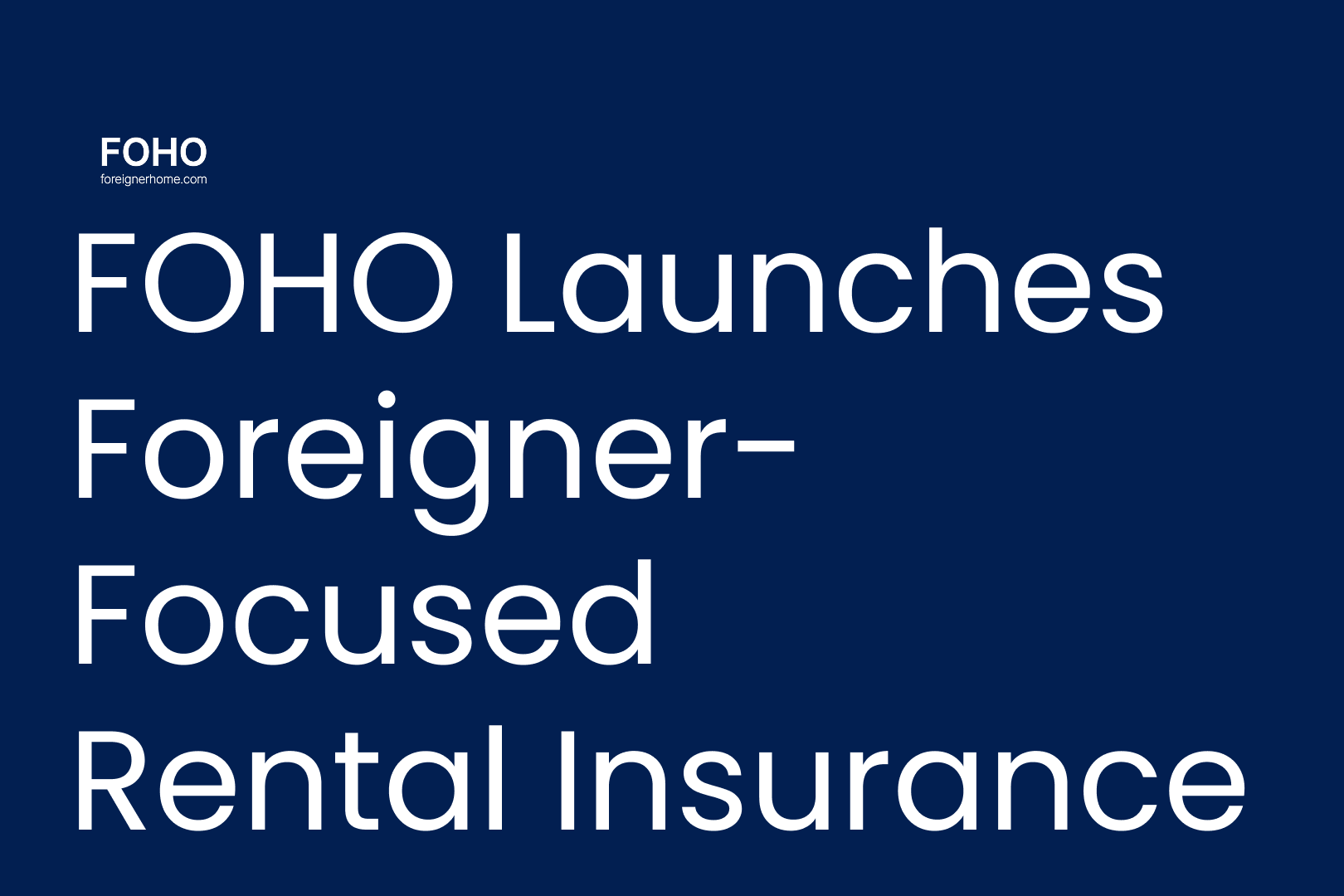
Nov 4, 2025
FOHO Launches Foreigner-Focused Rental Insurance
FOHO’s deposit insurance protects foreign tenants in Korea from landlord defaults. Stay safe with clear coverage and fast claims.
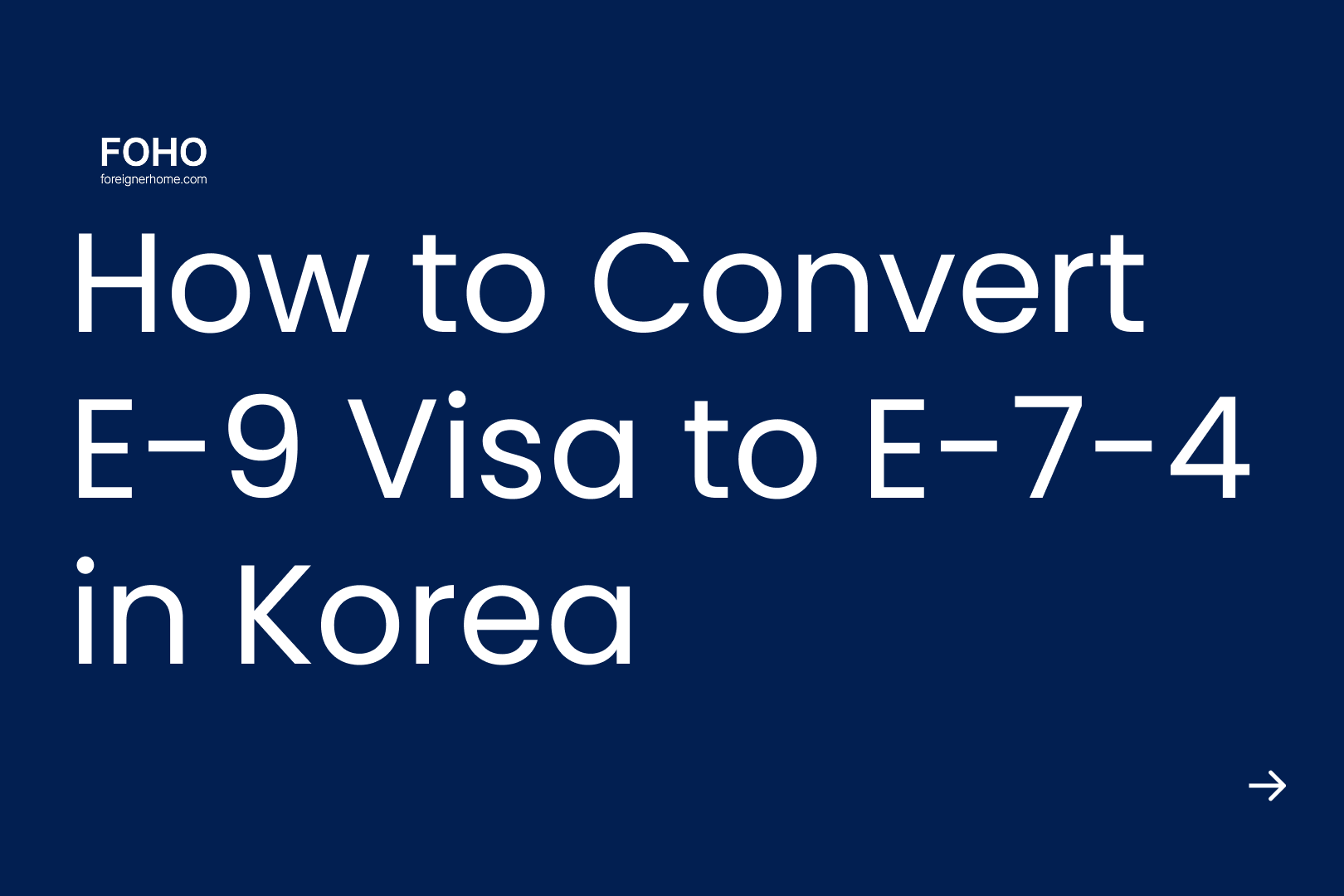
Oct 31, 2025
How to Convert E-9 Visa to E-7-4 in Korea
A guide for Vietnamese & Chinese E-9 workers in Korea. Learn the E-7-4 visa points system, F-2 requirements, and compare GME vs. Sentbe for remittance.
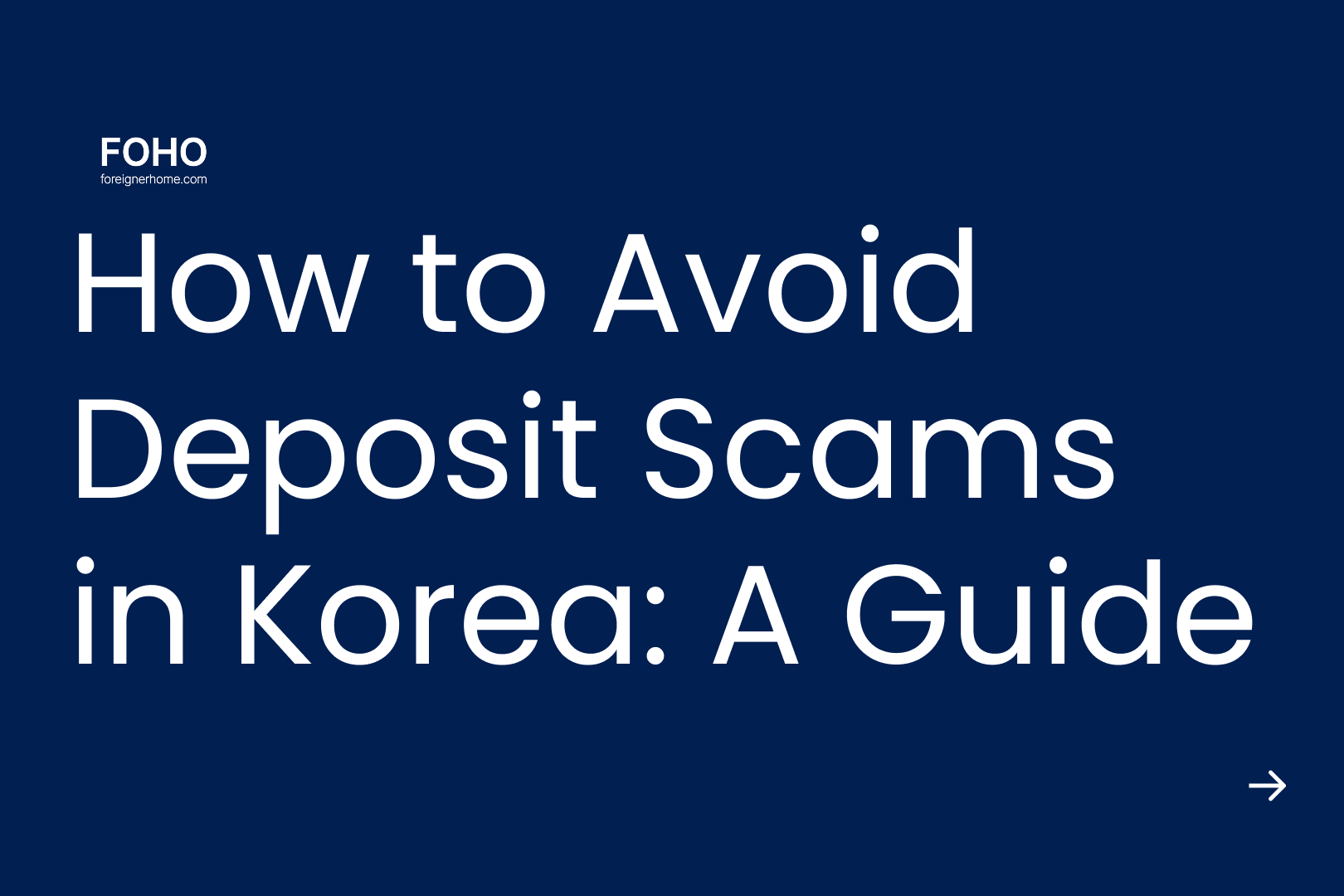
Oct 30, 2025
How to Avoid Deposit Scams in Korea: A Guide
Avoid deposit scams in Korea with our step-by-step guide. Learn to check property debt, understand the 'Deung-gibu,' and secure your deposit.
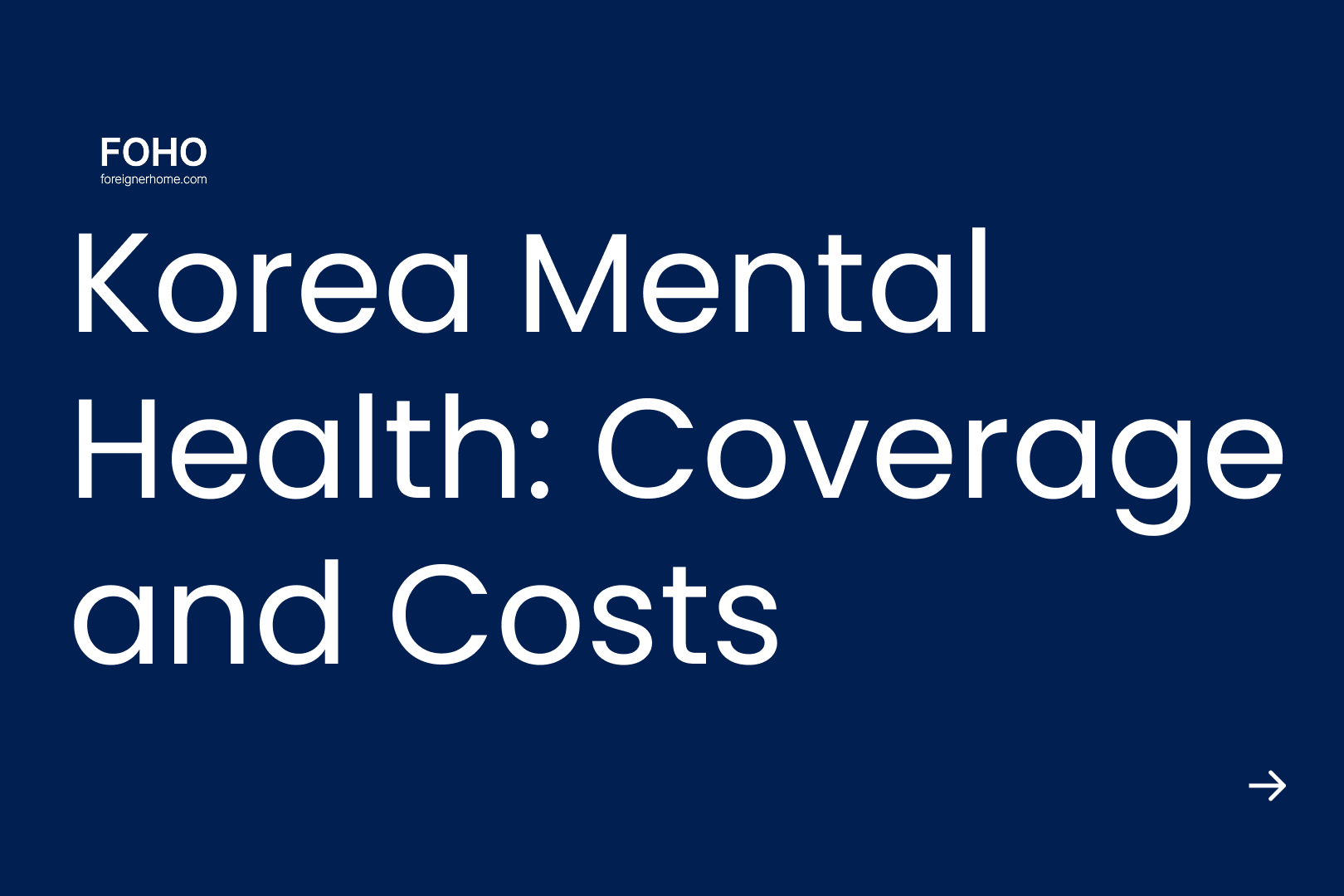
Oct 29, 2025
Korea Mental Health: NHIS Coverage and Costs
Get help with mental health in Korea. This guide for foreigners explains how to use NHIS, find low-cost options, and get medication prescriptions locally.
Subscribe to the FOHO newsletter
Actionable housing insights in your inbox.